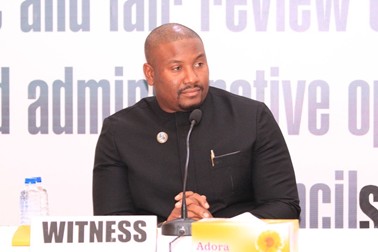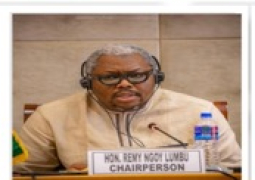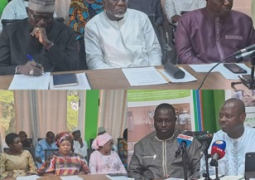
Mayor Bensouda began his testimony by outlining the council’s expenditure thresholds from 2018 to 2023. Initially, the Chief Executive Officer (CEO) was authorised to approve payments up to D100,000, the mayor up to D500,000, and any amount beyond required General Council approval.
However, following objections from the Finance Committee and other members, the arrangement was reversed mid-2018. The CEO’s limit was raised to D500,000, with higher amounts requiring council endorsement, often via recommendations from the Contracts Committee and final clearance from the Gambia Public Procurement Authority (GPPA).
Pressed on the practical workings of this system, Bensouda explained that the CEO chaired the Contracts Committee, which recommended contractors to the General Council. “In many cases, contractors were required to appear before the council for vetting. However, he admitted that in approximately 10% of cases, this process was bypassed prompting alarm among councillors.”
The inquiry then turned to specific payments, notably a D615,000 transaction linked to Councillor Binet Marong. The funds were tied to a grant from the British High Commissioner for a cold storage project.
Documents revealed the payment was processed without proper supporting paperwork. While Bensouda denied instructing the CEO directly, he admitted to supporting the request to avoid losing the grant, relying on the councillor’s assurance that the funds were forthcoming.
Lead Counsel Gomez argued that the absence of documentation, invoices, and GPPA clearance rendered the transaction unlawful under procurement laws. Bensouda conceded it was an administrative lapse but maintained that compliance was the CEO’s responsibility.
Further scrutiny was directed at Councillor Kemo Bojang, who requested funds for various youth and community initiatives. These included: D26,500 for political training, D10,000 for a football final in Brufut, D15,000 for COVID-19 face masks for disabled youth, Over D235,000 for football posts and nets across four fields, and D153,000 for goalposts in Bakau and Latrikunda German.
Bensouda insisted he approved the activities, not the payments. However, Gomez argued that endorsing activities with cost estimates amounted to financial approval. Under pressure, the mayor conceded that the lack of GPPA-certified procurement, invoices, and delivery notes constituted serious procedural lapses.
The mayor also acknowledged that grants received by KMC from 2018 were classified as “gifts” rather than revenue, allowing them to bypass formal financial reporting. He attributed this to inexperience and lack of guidance from the Ministry of Local Government, noting that the practice was later corrected.
The D217,000 honourarium payments to councillors for a market exercise sparked further debate. Bensouda argued the payments were justified under a budget line for honourariums, but admitted there was no clear evidence that all recipients had performed the work. The vouchers bore his signature, prompting Gomez to challenge his accountability. Bensouda defended the payments, claiming they were endorsed by the General Council and helped expose internal lapses.
Throughout the session, Gomez pressed Bensouda on his legal obligations as mayor. While Bensouda emphasised his role in setting structures and decentralising responsibilities, Gomez cited provisions in the Local Government Act and Finance and Audit Act requiring the mayor to ensure adherence to financial regulations.
Bensouda described the failings as administrative lapses rather than unlawful conduct, distancing himself from direct responsibility. He repeatedly declined to label the payments illegal, stating that legal advice was needed to make such determinations.
The inquiry exposed widespread irregularities, including shifting and inconsistently applied expenditure thresholds, payments to councillors without supporting documentation or GPPA clearance, misclassification of grants as gifts, procurement failures, including missing invoices and uncertified contractors, and honourarium payments lacking justification
As proceedings drew to a close, Lead Counsel Gomez made it clear that the inquiry was not merely about administrative errors, but whether the council’s highest office had permitted the disbursement of public funds outside the bounds of the law.




